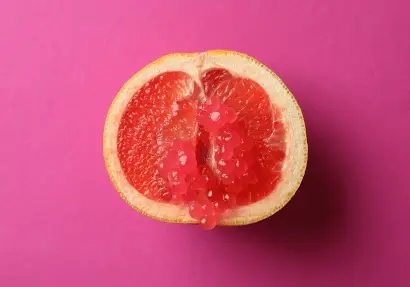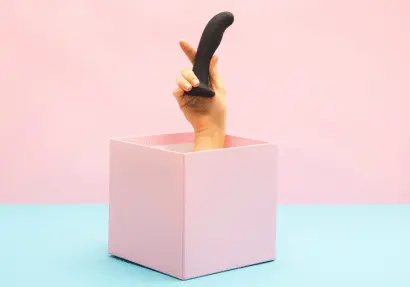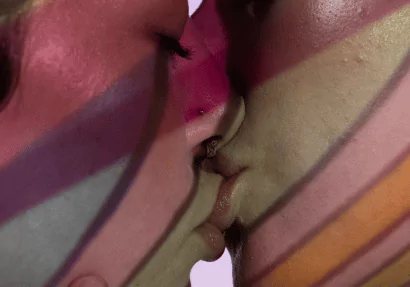Key Points
- Determine your hair type and goals to know what kind of hair serum benefits you’re searching for.
- Understand the ingredients available in hair serums as well as the benefits and risks they come with.
- Avoid ingredients that may cause damage to your hair, scalp, or overall health.
- Choose a hair serum based on your goals and understanding, then take it for a trial run to see how your hair likes it!
Are you curious about what goes into your hair serum? Understanding the ingredients in your hair serum is crucial to finding the right product for your hair type and needs. With the endless options available on the market, it’s important to know which ingredients offer the benefits you’re looking for and which ones to avoid.
Use this comprehensive guide to learn everything about the ingredients that go into hair serums. Discover which you need and find the right serum for you.
Understanding the Ingredients in Your Hair Serum
There are endless hair serums available on the market. Each product comes with its promises — reducing frizz, adding shine, nourishing moisturization, adding volume, and often a combination of benefits. Each one also boasts the main ingredients to catch your attention. Do you really know which ingredients benefit your hair, though?
Some hair serums are full of filler ingredients or harsh chemicals. Sometimes, the boasted ingredient on the package doesn’t actually help your hair much, or it’s barely in the formula. Paying attention to the ingredients in your hair serum is vital to finding the right product for your hair. Unfortunately, a lack of regulation on hair products means you need to take some matters into your own hands.
Checking and understanding the ingredients in your hair products ensures that the serum is safe for your hair type and scalp. Some ingredients, such as alcohol, can be drying to the hair and scalp, while others, such as sulfates, can be harsh and strip the hair of its natural oils. Choose a serum for your specific hair type and concerns.
Choose a serum that aligns with your hair goals. If you’re looking for a serum to add shine, choose one that contains ingredients like argan oil or keratin. If you’re looking to control frizz, look for ingredients like silicone or behentrimonium chloride. It’s also important to learn which products aren’t suitable for certain hair types. For example, argan oil is too dark for blonde hair and often too heavy for fine hair.
Common Ingredients in Hair Serums
Learning about the ingredients in your hair serums allows you to find the best products for your unique needs and desires. Many ingredients are commonly found in hair serums that provide various benefits.
Proteins
Proteins are essential for hair health. They make up about 80 percent of the hair’s structure and give hair its strength, elasticity, and shine. Proteins fill in gaps in hair, strengthening the shaft and reducing breakage. They also increase shine, reduce frizz, and prevent hair loss.
Choose a protein treatment according to your hair type. If you have dry hair, look for a moisturizing protein treatment. If you have oily hair, use a lightweight protein. Here are some common proteins in hair serums.
Keratin
Keratin is the main protein that makes up hair, which gives it strength, elasticity, and shine.
Collagen
Collagen is another protein found in hair that gives hair its structure and support.
Silk Protein
Silk protein is a natural protein known for its moisturizing and conditioning properties. It can make hair softer, smoother, and more manageable.
Wheat Protein
Wheat protein is a plant-based protein known for its strengthening and repairing properties. It helps make hair stronger and less prone to breakage.
Soy Protein
Soy protein is another plant-based protein known for its moisturizing and detangling properties. It can help to make hair softer, smoother, and easier to manage.
Vitamins
Vitamins nourish the hair and scalp. Vitamins should primarily come from your diet, but topical treatments are beneficial to your hair and scalp. See which vitamins you may need.
Biotin
Biotin is essential for the production of keratin, the protein that makes up hair. Biotin deficiency leads to hair loss, breakage, and thinning.
Panthenol
Panthenol is a form of vitamin B5 that can help to moisturize and repair the hair. It can also help to protect the hair from heat damage.
Vitamin A
Vitamin A is essential for cell growth and repair. It’s involved in the production of sebum, which is the oil that keeps hair healthy. Vitamin A deficiency can lead to dry, brittle hair.
Vitamin C
Vitamin C is an antioxidant that protects hair from damage and helps produce collagen, a protein that gives hair strength and elasticity. Vitamin C deficiency can lead to hair loss and breakage.
Vitamin E
Vitamin E is an antioxidant that protects hair from damage and helps produce new hair cells. Vitamin E deficiency can lead to dry, brittle hair.
Folate
Folate, also known as vitamin B9, is essential for cell growth and repair. Folate deficiency can lead to hair loss and breakage.
Iron
Iron is essential for the production of red blood cells, which carry oxygen to the hair follicles. Iron deficiency can lead to hair loss and thinning.
Zinc
Zinc is essential for cell growth, cell repair, and the production of new hair cells. Zinc deficiency can lead to hair loss and breakage.
Sealants
Sealants come in a variety of forms, including butter, oils, and silicones. Sealants lock in moisture to prevent the hair from getting dry and damaged. They create a protective barrier around the hair to protect it from heat-styling tools. Sealants also smooth down hair cuticles to reduce frizz, seal the ends of hair, prevent split ends, and add shine to your hair. Plus, these products make hair more manageable and less prone to tangles.
Shea Butter
Shea butter is a natural butter that is rich in fatty acids. It’s moisturizing and protective.
Cocoa Butter
Cocoa butter is a natural butter extracted from the cocoa bean. It’s rich in fatty acids and vitamins to moisturize hair, make it shiny, protect it from heat, and reduce frizz.
Mango Butter
Mango butter is a natural oil that moisturizes the hair, protects it from heat damage, reduces frizz, and adds shine. It also contains antifungal and anti-inflammatory properties to soothe the scalp and treat dandruff.
Honey
Honey is a natural humectant that can help to attract moisture to hair. It can also help to add shine to hair.
Glycerin
Glycerin is a humectant that helps to attract water to the hair. This can help to keep the hair hydrated and prevent it from drying out.
Ceramides
Ceramides are a type of lipid that helps to protect the hair from damage. They can also help to keep the hair hydrated and prevent it from frizzing.
Silicones
Silicones are synthetic polymers that coat the hair to make it smooth and shiny while taming flyaways. They also protect the hair from heat damage. Silicones moisturize hair to make it feel softer and more manageable. However, silicones can build up on the hair and scalp over time, making it difficult to style the hair.
The use of silicone in hair products is quite controversial. Some people love it, and others believe it dries hair out over time. The FDA approved the use of silicone in beauty products, and there are no known risks to your health. However, some studies suggest there may be a negative impact on the environment and fish from using silicone.
According to dermatologist Dr. Jennifer Trent, “If you have decided to avoid silicones in your hair and skin care products, there are alternatives. For the hair, you can try plant-based oils and butter (jojoba oil or shea butter) to moisturize and strengthen the hair and give it a smooth, soft texture.”
If you want to test and see if silicones are right for you, choose from one of these two categories:
- Water-soluble silicones: These silicones are easily washed away with water and — therefore — less likely to build up on the hair and scalp. They moisturize hair while making it smoother and more manageable.
- Non-water-soluble silicones: These silicones aren’t easily washed away with water, so they may cause build-up on the hair and scalp over time. They protect hair from heat damage and make it appear shinier.
Natural Oils in Hair Serum
The main focus of many hair products is oil ingredients. Many oils offer a range of conditioning properties and protect from heat damage. Find one — or several — that suit your needs.
Argan Oil
Argan oil is a Moroccan oil rich in vitamins and antioxidants known for its moisturizing and conditioning properties. It makes hair softer, smoother, and more manageable while protecting it from heat damage.
Coconut Oil
Coconut oil is a natural oil rich in fatty acids known for its moisturizing and detangling properties. It makes hair softer, smoother, and more manageable while protecting hair from heat damage.
Jojoba Oil
Jojoba oil is a natural oil similar to the sebum produced by the scalp. It provides moisture, prevents damage, and balances the scalp’s secretions.
Avocado Oil
Avocado oil is a natural oil rich in vitamins and minerals known for its moisturizing and nourishing properties. It makes hair softer, smoother, and more manageable while protecting from heat styling damage.
Macadamia Oil
Macadamia oil is a natural oil rich in fatty acids and known for its moisturizing and strengthening properties. It makes hair softer, smoother, and more manageable.
Olive Oil
Olive oil is a natural oil rich in vitamins and antioxidants known for its moisturizing and conditioning properties. It makes hair softer, smoother, and more manageable.
Castor Oil
Castor oil is a natural oil rich in fatty acids and known for its moisturizing and strengthening properties. It promotes hair growth, makes your hair stronger, and prevents breakage.
Essential Oils
Essential oils aren’t here just to make your hair smell good. However, the scent is amazing, too! Discover the natural power of these essential oils in your favorite hair serum.
Lavender Oil
Lavender oil is calming and relaxing, reducing stress and related hair loss. Lavender oil can also help to improve scalp health, which can promote hair growth.
Peppermint Oil
Peppermint oil is stimulating and refreshing, increasing blood circulation to the scalp and promoting hair growth. Peppermint oil can also help to reduce dandruff and itchiness.
Rosemary Oil
Rosemary oil is stimulating and astringent, increasing blood circulation to the scalp and promoting hair growth. Rosemary oil went viral on TikTok early in the summer of 2023 for impressive hair growth, and it’s expert-approved!
Cedarwood Oil
Cedarwood oil is antibacterial and antifungal, protecting the hair from dandruff and other scalp conditions. Cedarwood oil can also help to reduce hair loss and promote hair growth.
Tea Tree Oil
Tea tree oil is antibacterial and antifungal, helping to protect the scalp from dandruff and other infections. Tea tree oil can also help to reduce hair loss and promote hair growth.
Chamomile Oil
Chamomile oil is calming and soothing, reducing stress, anxiety, and related hair loss. Chamomile oil can also help to improve scalp health, which can promote hair growth.
Ylang-ylang Oil
Ylang-ylang oil is relaxing and uplifting, reducing stress and hair loss. Ylang-ylang oil can also help to improve scalp health, promoting hair growth.
Ingredients To Avoid
While hair serums are full of nourishing ingredients, they also tend to have filler ingredients that aren’t so good for your hair or overall health. Check all of your beauty products to know what you’re putting in your body! Here are some ingredients to avoid in hair serums and other hair products:
- Sulfates: Sulfates are harsh detergents that can strip the hair of its natural oils. They can also cause dryness, frizz, and breakage.
- Parabens: Parabens are preservatives linked to health problems, such as cancer and reproductive problems.
- Phthalates: Phthalates are plasticizers used to make hair serums more pliable. They’re linked to health problems, such as cancer and reproductive problems.
- Formaldehyde: Formaldehyde is a known carcinogen that’s sometimes used as a preservative in hair serums. Be careful; this isn’t regulated and often sneaks into many beauty products.
- Mineral oil: Mineral oil is a petroleum product that can clog hair follicles and lead to hair loss.
- Synthetic fragrances: Synthetic fragrances can be irritating to the skin and scalp.
- Triclosan: Triclosan is an antibacterial agent linked to health problems, such as antibiotic resistance.
- Alcohol: Alcohol can dry out the hair and scalp.
- DEA, MEA, and TEA: Diethanolamine, Monoethanolamine, and Triethanolamine are foaming agents that can be irritating to the skin and scalp.
Choosing a Hair Serum
To find the right hair serum for you, first, determine your specific hair goals. Are you looking to reduce frizz, add shine, nourish your hair, or address any specific concerns?
Once you have identified your goals, pay attention to the key ingredients mentioned in the article that align with those goals. Consider your hair type and choose a serum that is suitable for it.
By considering your goals, specific ingredients, and hair type, you can narrow down the options and find the right hair serum for you. Remember that there isn’t a clear-cut answer for which hair serum works best for you. Try a few until you fall in love with the right one!
Hair serums come in various formulations with different ingredient combinations. By trying different serums, you can explore the benefits of various ingredients and find the ones that work best for your hair type and concerns. Each serum may have a unique blend that offers specific advantages, such as added shine, frizz control, or moisturization.
Everyone’s hair is unique, and what works for one person may not work for another. Trying different hair serums allows you to find the one that aligns best with your personal preferences in terms of texture, scent, and overall feel of your hair.
Some individuals may have sensitivity or allergies to specific ingredients. By trying different serums, you can identify any potential irritants or allergens and avoid them in the future. It’s essential to find a serum that doesn’t cause any adverse reactions on your scalp or hair. Give each serum a fair trial period to assess its effectiveness. It’s a good practice to try each serum for a few weeks to allow your hair to adjust and show the results.
Treat Yourself
Set your hair goals and treat yourself to some self-care with a luxurious hair serum. Not only do they make your hair look amazing and boost your confidence, but they deeply nourish your locks to improve your hair health. Say goodbye to frizz, itchy scalps, flyaways, and heat damage with a magical hair serum!
Published on Age Defying September 1, 2023



